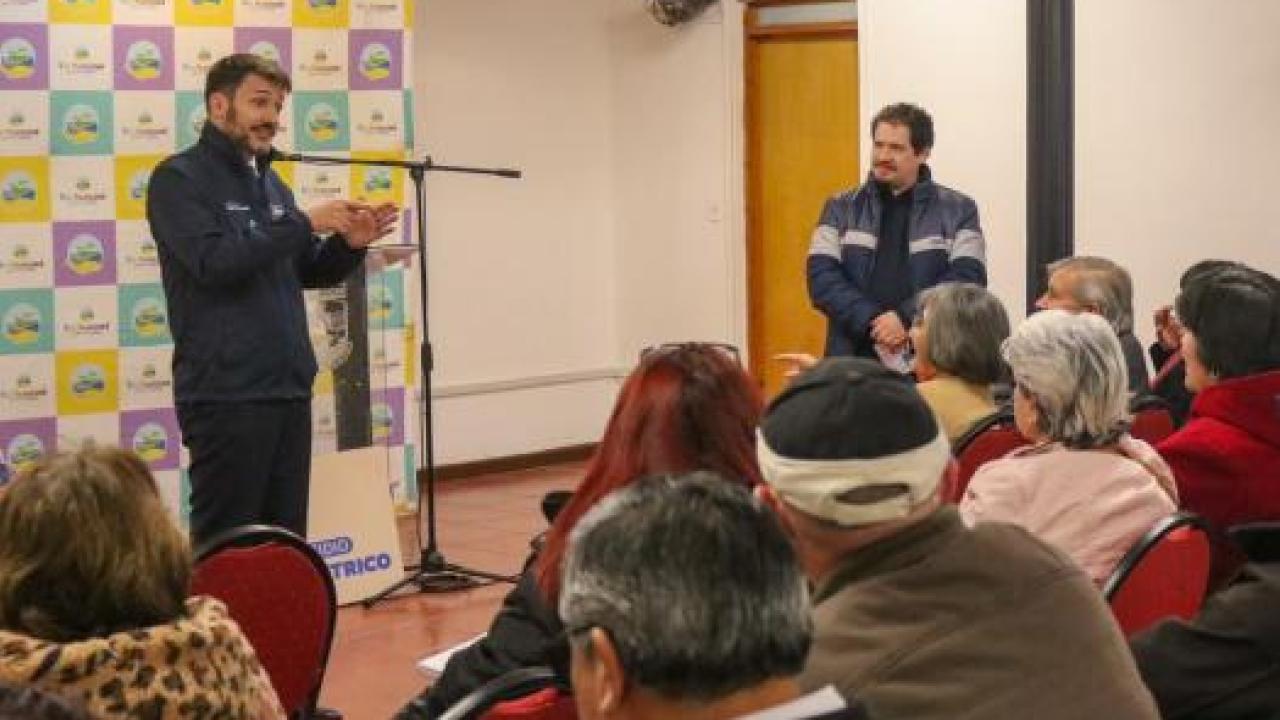
"We hope that this reform will allow about a 7% decrease in electricity rates, starting next year," declared the authority.
The conflict in Chile over the increase in electricity bills continues to escalate.
Although the Boric government wanted to remove itself from the controversy, the same president indicating that it is better to pay, since "debt that is not paid is more expensive", the increase scheduled for July, October and then January 2025 is generating unease in citizenship and concern in the political spectrum, especially given the proximity of the municipal and gubernatorial elections in October.
This has led the government team to go from slamming the door on any special aid given days ago by the Minister of Finance, Mario Marcel, to today the Minister of Energy, Diego Pardow , announcing more subsidies.
"The Government is going to present a new bill, what this bill seeks is to triple the coverage of the subsidy for vulnerable households, at the same time we are going to also address the special needs of electro-dependent households and some areas that have a particular energy situation, the medium-sized systems, the southern zone of our country," said Pardow before joining a working group that seeks to find alternative solutions to the increases in electricity bills, frozen since the pandemic.
Furthermore, Pardow committed a figure: "In terms of orders of magnitude, we hope that this reform will allow close to a 7% decrease in electricity rates, starting next year, by the way," he indicated.
Increases in residential and SME electricity bills, in any case, are expected between 20% and 47%.
The minister hopes to work out all options with parliament over the next few days.
Among them, a surcharge on the carbon tax and a greater tax contribution are being considered to make viable the greater resources obtained via value added tax with respect to this increase in the tax base that occurs, particularly with the increase in rates.
"I am going to go to the technical table today to precisely present this idea and talk with the parliamentarians with a view to shortening the operating deadlines and allowing this bill to be, hopefully, within July, no later than August 15. "Those are the deadlines we are working with," said Pardow, in addition to also suggesting a reform to the way energy is purchased from small distributed generation facilities.
DIFFERENT OPTIONS
Among the various ideas proposed by Chilean parliamentarians to minimize the increase in electricity bills, it has been proposed to use VAT from the increase in bills, raise the tax on coal generators and more.
For now, the Electricity Subsidy would help families in the 40% most vulnerable, according to the Social Household Registry, to combat the increase in their electricity bills. However, there are those who maintain that this benefit is not enough and that it must be expanded.
The president of the Senate Mining and Energy Commission, Juan Luis Castro (PS), assured that “the VAT for the sole effect of the rate increase implies collecting, for the State, 10 million dollars per month, just for the increase in electricity rates. So, we say that those 10 million per month, which become 120 million dollars per year, mean doubling the subsidy that is in law today.”
Meanwhile, deputy Carlos Bianchi (IND-PPD), stated that “it is not enough that there are a million homes that could have a benefit. This, at least, must be tripled. People from the most vulnerable 40% are going to be made to compete, therefore they are not being guaranteed that, just because they are registered, they will obtain the benefit.”
For his part, from the opposition, his counterpart in the Lower House, deputy José Miguel Castro (RN) called on the Minister of Finance, Mario Marcel, that “the extra VAT for these increases in accounts can perfectly be allocated to the middle class and, also, to make reallocations of money, in programs that are ideological and that are not well evaluated.”
Along the same lines, independent deputy Ruben Oyarzo maintained that “the additional tax on coal generators could partially help increase the subsidy for the most vulnerable families, but, clearly, this does not help the middle class and the emerging middle class. , who, for a change, will have to sustain the payment of this accumulated debt.”
It must be remembered that this scenario is occurring in the midst of multiple questions to the Minister of Energy, Diego Pardow, who is accused of hiding information regarding the increase in electricity rates.
Despite this, the opposition ruled out a possible Constitutional Accusation against him, but an interpellation is being evaluated.
This was commented by deputy Guillermo Ramírez (UDI), arguing that “the interpellation was designed for cases like this. When a minister has not provided sufficient information and Congress needs to know the information in a more complete way, the tool established by the Constitution is interpellation.”
THREE PILLARS
Minister Pardow explained that the way in which the expansion of the subsidy will be financed is based on three pillars: a surcharge on the green tax, a surcharge on the public service charge that today is paid especially for large electricity consumption and a greater fiscal contribution via greater collection of value added tax.
"I want to highlight that these three pillars comply with what has been the Government's orientation regarding this type of policies, it is a self-contained system with fiscal responsibilities. Those are the two principles with which we are working," he stated this morning in a press point.









